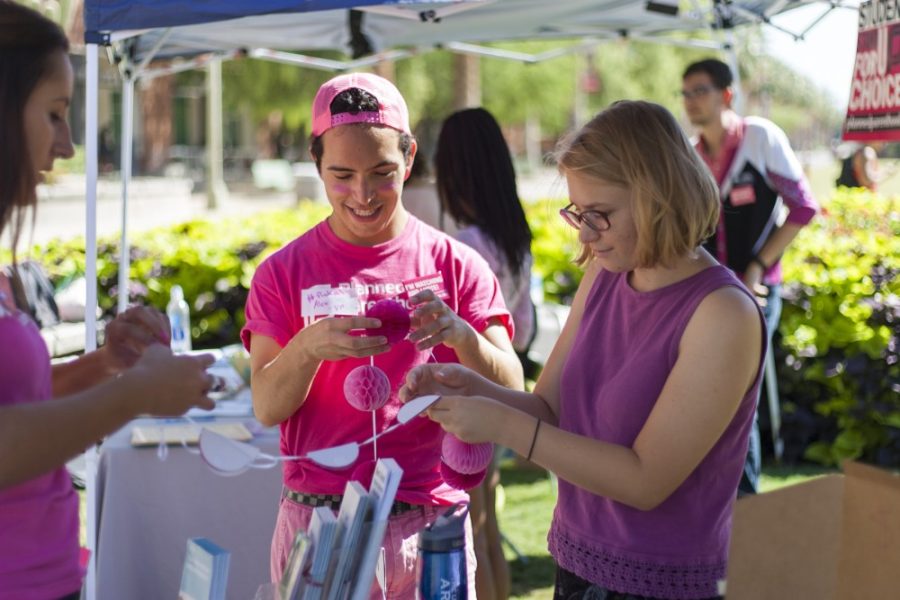The amount of reported abortions in Arizona has seen a slight decrease. An annual abortion report released by the state shows that abortions decreased 3.7 percent from 2013 to 2014.
The state report coincides with a nationwide decrease in the number of reported abortions. Lee Ann Hamilton, a health educator and sexual health specialist at UA’s Campus Health Service, suggests that this decrease could be a result of declining teen pregnancy rates.
“So one of the possible explanations is teen pregnancy rates have declined significantly over the last two years,” Hamilton said. “If there are fewer pregnancies, you are much more likely to see fewer abortions.”
According to The National Campaign to Prevent Teen and Unplanned Pregnancy, the teen pregnancy rate in the U.S. has dropped 51 percent from its peak in 1990 to 2010.
Hamilton also suggested that the Affordable Care Act, signed into law in 2010, may have impacted the decline in abortions as well.
“I don’t have the data to know if more people are using birth control, but the fact that it became something to be covered by insurance companies I believe has increased the access to reliable birth control,” Hamilton said.
The Affordable Care Act required insurance companies to cover birth control costs and it also made it possible for more people to get insurance. In a report from the Guttmacher Institute, the percentage of women aged 15-44 who were uninsured dropped 22 percent nationwide from 2013 to 2014.
Kenzie Bevington, a law sophomore and the social chair and public relations head for UA’s Voices for Planned Parenthood, or VOX, said she believes Arizona could decrease abortion rates even more by passing comprehensive sexual education requirements.
“I think it [comprehensive sexual education requirements] would decrease abortions,” Bevington said. “It would increase knowledge about how to get access to contraceptives. Sunnyside High School in Tucson just got a grant from the federal government for comprehensive sex education, which is great because they have one of the highest teen pregnancy rates in the country.”
According to KVOA, the federal grant was given to Sunnyside Unified School District in July and totaled $4.3 million.
In 2010, Arizona’s teen pregnancy rate ranked 18th in the U.S. Arizona is one of 28 states that does not require comprehensive sexual education in schools.
However, in a recent poll by the Huffington Post, 66 percent of participants (Republican and Democrat alike) agreed that teenagers should be taught about various methods of birth control, not just abstinence.
“There is data that shows that sex ed does not lead to increased sexual activity but it does lead to a decrease in pregnancy,” Hamilton said. “Abstinence-only has not been linked to successful decreases in sexual activity. Telling people to say ‘no’ doesn’t make them say ‘no.’”
UA students looking for low-cost contraceptives and knowledge about safe sex can head over to the Campus Health Center, which prescribes birth control and stocks many different kinds of birth control at its pharmacy.
Follow Michelle Jaquette on Twitter.








